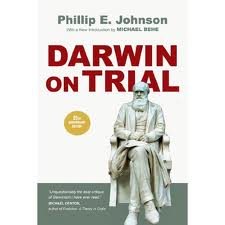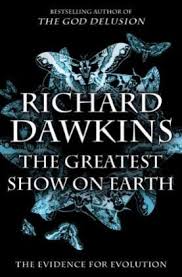Ben Stein’s Intelligent Adventure
By Kate Wright | April 13, 2008 | American Thinker
Ben Stein’s new film EXPELLED: No Intelligence Allowed, is a documentary that appears to be about Intelligent Design and the shortcomings of Darwinism. The film is not just an exploration of the limitations of The Origin of Species, but a journey to uncover the mindset that Darwinism engendered among those with an agenda to replace traditional understandings of God with pure materialism.
But far from offering a weighty discourse on theories of monism, Stein delivers a pop culture MTV-style Road Film that has already reignited the Culture Wars, with a just-issued cease and desist letter from a group at Harvard. The Harvard letter claims that a clip in the film plagiarizes an “Inner Life of the Cell” animation, and possible further legal action could disrupt the opening of the film on April 18.
We enter Ben Stein’s argument through images of the building of the Berlin Wall. Using inter-cuts, upbeat music, original text, and exciting graphics, Ben creates his own music video genre, as he visits professors who were “expelled” from universities and think tanks for merely mentioning the words “Intelligent Design” in their work.
Then, unexpectedly, we find ourselves in Dachau Concentration Camp, but this is no ordinary detour. Suddenly, we realize that Ben is about to link Darwinism to Nazism, by way of exposing the mindset of that gave way to the Jewish Holocaust.
The gas chambers of Dachau are horrifyingly familiar. What begs question of the ontological connection between Darwinism and Nazism, however, is the tour of the Nazi Hadamar Eugenics Labs. Watching a modern-day German woman guide Ben through the labs is, to put it mildly, revolting. Despite Ben’s gentle prodding, she remains neutral throughout, unmoved, as she impassively informs Ben that 15,000 victims were exterminated in the gas ovens of the Eugenics labs during World War II. Then, despite her polite demeanor, she confirms what we fear most. She is unable to express any remorse whatsoever for the atrocities that happened; how Nazis, in pursuit of the master race, exterminated disabled, insane, feeble-minded, homosexual, and fragile human beings, alongside 6,000,000 Jews.
By revealing this mindset for its arrogance and profound lack of shame, Ben succeeds in motivating a new generation of film-goers to “Never again!” tolerate genocide. At the same time, he pushes the “story” forward through the ideas behind the story.
The “Story Spine”: Materialism vs. Consciousness
All great movies reveal moral truth. They reveal what the story is about through the ideas behind the story. In this film, the “spine” that reveals the “story” hinges on the conflict between materialism, as Darwinism, and consciousness, as Intelligent Design.
Materialism is a philosophy that holds that the only thing that can be proven to exist is matter. In general terms, Darwinism relies on materialism, to the exclusion of dualism, pluralism, and idealism. Intelligent Design, by contrast, relies on consciousness in the realm of phenomenal reality, to explain that which cannot be explained by matter.
In simple terms, Darwinism addresses the material changes that take place in cells in evolution, but never addresses the origin of life itself. In a world where materialism prevails, there is a permanent academic divide between Darwinism and Intelligent Design; and like two cultures separated by the Berlin Wall, never the twain shall meet.
The reality that godless materialism gave way to Darwinism and, at the same time, became the basis (as historical materialism) for Nazism, may be too much 19th Century German intellectual history (Kant, Kierkegaard, Feuerbach, Nietsche, Marx, Engels, and Hegel) for some viewers to appreciate within this 93-minute film. For others, this is why Ben’s nexus creates a fascinating road-trip unlike any other.
Free Speech
Rather than detail the implications of Neo-Darwinism by tracing the history of dialectical materialism and historical materialism in the development of Nazism, Ben makes his satirical case by featuring the flappable faces of authoritarian academics who ferociously deny Ben’s right of academic inquiry into the origin of life and the universe. In so doing, Ben succeeds in positioning this film, in the narrow context, as an argument against academic suppression, and in the larger context, as the “must see” pop culture argument for free speech.
Via onscreen interviews with Neo-Darwinists such as Professor Richard (“The God Delusion”) Dawkins, Ben typifies the pervasive practice of authoritarian attitudes in academic elites, particularly toward God-fearing people. As such, this is not a film about believers vs. non-believers. This is a first-rate expose about the consequences of suppressing freedom of expression, based on the questionable assumption that atheistic secularism is the state religion of the United States of America.
As history reveals, however, the proliferation of any fascist, authoritarian or totalitarian mindset wreaks grave consequences that are not limited to the atrocities that happened in Hitler’s Germany. Stalinism, Maoism, and Communism plagued the 20th Century with the world’s most sinister dictators (Stalin, Mao, Pol Pot, to name a few) who delivered mass genocides totaling well over 130 million deaths.
The Problem of God
This film states that Neo-Darwinism is about world view, not scientific exploration. At its heart, however, the film also addresses the role of consciousness in human development; that is, the capacity to discern right from wrong. By depicting this dialectic through the prism of the Holocaust, the film succeeds in raising the most basic existential question we all face as human beings: The Problem of God.
Post-secular world
How do we approach the “problem” of God, in a post-secular world?
Does the continuum of intellectual thought assist us in solving the “problem”? Or is it solely a personal philosophical question? Perhaps the answers lay in Natural Law(s)? Or can we come to a greater understanding of the “problem” through the Natural Law(s) of the universe(s)?
To explore this post-secular question in the historical context, Ben takes us to the Jefferson Memorial and the Washington Monument, to rediscover the true meaning of freedom. By reminding us that freedom exists as a gift from God, Ben brings to light that America defends the dignity and rights of all human beings, regardless of race or creed, by virtue of the fact that that “all men are created equal, that they are endowed by their Creator, with certain inalienable rights.”
The Desire to be God
Meanwhile, the viewer is tacitly making his or her private assessment of the two sets of onscreen proponents and their opposing world views: 1) those that ascribe to the atheistic (Darwinian) view that reflects itself in the extreme end of the materialist realm as the desire to be god, and 2) those that credit the theistic (Intelligent Design) view that reveals itself in the idealist realm, as the search for God.
In a sublime moment at the film’s climax, Ben presses Professor Richard Dawkins to explain the origins of life. According to Professor Dawkins, there is no God; but it is possible, and indeed likely, that intelligent life from outer space landed on earth, and that’s how it all got going.
Freedom of Moral Conscience (The Moral of the Story)
Discerning right from wrong is different from knowing right from wrong. The German tour guide at Hadamar Eugenics Labs may have been able to discern right from wrong, but somehow, was not able to know right from wrong.
This capacity for moral conscience, like academic and scientific inquiry, is fundamental to freedom of expression. Despite all the failed ideas and experiments along the continuum of intellectual history, we still yearn for poetic ideals and, as a civilization, recognize the need for an international ethos that links us to the past and guides us into the future. As such, the continuum of history inspires us to return to, and America relies on, our foundational roots: the universal moral truths handed down by the Jews, to all human beings in the form of moral conscience, through Christian Enlightenment.
And for those who insist on authoritarian scientific inquiry to the exclusion of other forms of expression, please be referred to Webster for the etymology of the word conscience, with its Latin roots “com+scire” which literally means “to know more…at science.”
As images of the Berlin Wall being torn down fill the screen, we are left with the idea that freedom of thought is fundamental to the scientific process, as well as to the search for God and the development of a moral conscience.
Above all, we appreciate that America (where 82% believe in God) is the hope for mankind. And this movie, thanks to freedom of expression, is for grown-ups, regardless of age.












